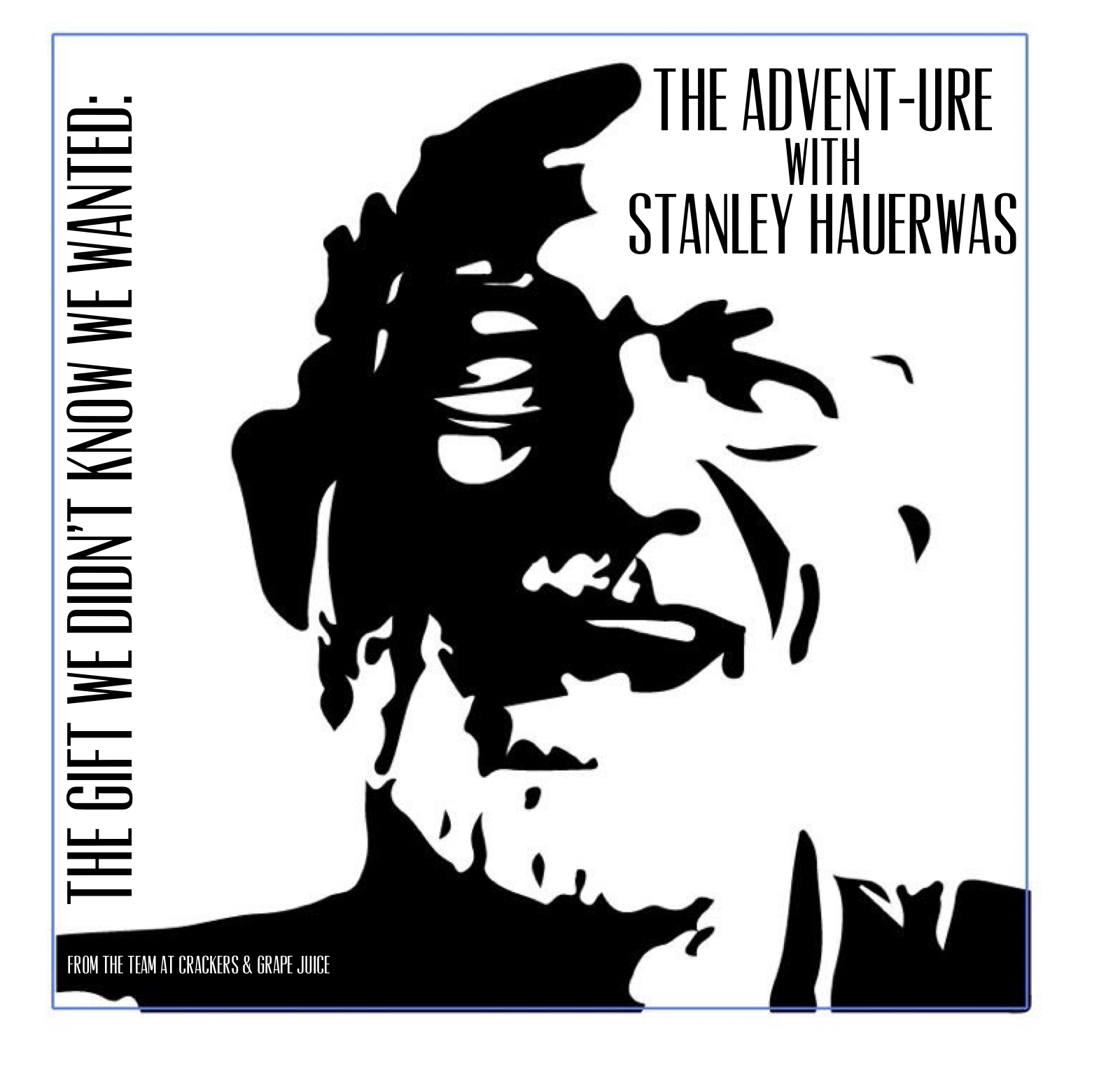
 “He is the image of the invisible God, the firstborn of all creation; for in him all things in heaven and on earth were created, things visible and invisible…” St. Paul writes a good 3 decades before St. Luke sets down to write the Christmas story.
“He is the image of the invisible God, the firstborn of all creation; for in him all things in heaven and on earth were created, things visible and invisible…” St. Paul writes a good 3 decades before St. Luke sets down to write the Christmas story.
The trees and decorations this time of year, the carols and the candles, the shiny gifts and friendlier-than-usual greetings- the Christmas cheer, it all collides and contrasts with Paul’s point in Colossians.
We’re stuck with Jesus.
The baby in the manger, Emmanuel— God-with-us— he grows up to be Jesus, one who we would rather kill than be with.
That’s what Paul’s Christ carol in Colossians is driving at— that the whole meaning of Christmas, the shock and irritating specificity of incarnation, the problematic particularity of Mary’s child, it isn’t just “God is with us.”
That sounds nice and comforting and maybe even flattering.
The discomfort of Paul’s particular Christmas song is that God is with us…as Jesus.
The message of Christmas isn’t that God came among us as a baby, that doesn’t sound too demanding. No, the message of Christmas is that God came among us as the-baby-who-grows- up-to-be-Jesus.
Those are the uncomfortable claims we anticipate this Advent season. That in Jesus of Nazareth we’ve seen all of God– all of God- there is to see.
The message of Christmas is not, that in Jesus we get a glimpse of the divine. No.
The message of Christmas is not, that in Christ we discover but one path (among many) leading to God.
God, I wish.
If we could find any way to God the incarnation wouldn’t be necessary in the first place.
No, Paul’s claim around incarnation is that in Jesus of Nazareth we’ve seen (and heard) all of God there is to find.
Now, even though I’m a professional Christian, what’s true for you goes for me too: my life would be whole lot easier if God would remain at a comfortable distance, abstract and aloof. I could get to my wants more quickly if I could just say: Well, God’s mysterious, Jesus— he only gives us a glimpse of God. Maybe I’ll go get a second opinion.
That’s what the Colossians wanted. Colossae was a diverse, cosmopolitan city, and like many degreed, smartphone-wielding Nones and Dones today, they believed that the true god was too majestic to be identified with a particular person.
The true god couldn’t be found in specific stories.
God was too big to be put into a box, the Colossians claimed (just as we claim).
Of course, the rub of incarnation is that God has chosen the tiniest of boxes for himself, a box no bigger than Mary’s belly.
In their sophistication, the Colossians, preferred to find god in nature, out among the stars. They even composed a hymn, dedicated to the unknowable god who lay behind the cosmos and creation.
Then, decades before Matthew tells us about the wise men or Luke Caesar’s census, Paul gets his hands on the Colossians’ carol, and he rewrites it. He turns it into the Christ Hymn at the beginning of Colossians. Paul wants Colossae to know that things might be easier for us if it were otherwise but, at Christmas, in Jesus, God gets particular. Jesus, we say, is a revelation of the real ways of God. It’s Jesus, not the Defense Department, who show us the real world really.
Think about what that means.
Because of Christmas, when we have a decision or dilemma in our lives, we can no longer ask: “I wonder what God wants me to do?” No, now, because of incarnation, in Jesus Christ we’ve all already learned more of God’s will for our lives than any of us are willing to attempt.
Though it’s the Gospel truth, you won’t hear many preachers this Christmas Eve warning their hearers, “Watch out! Don’t get too close to the manger. Don’t be fooled by his smile or his sweet eyes. Its better to distract yourselves with sentimentality and Santa songs and the fake ‘War on Christmas’ because this is one difficult, demanding baby.”
For good reasons, pastors are reluctant to ruin your Christmas season by asking, “Are you nursing a grudge against someone you love? Have you gossiped about a neighbor maybe? Are there people who are just too unsavory for you to spend time with them? Strangers, aliens, refugees you just wouldn’t welcome? If so, you may want to think twice before you say Merry Christmas, because this baby’s going to have a few things to say when he grows up and I’m sorry but you’re going to have to listen. You shouldn’t sing him to now and if you’d just rather shut him up later. After all, in him all the fullness of God was pleased to dwell.”
In other words, we Christians say:
It’s not that Jesus is someone who speaks words about God or words inspired by God.
It’s that Jesus is the Word God speaks to us.
It’s not that Jesus is someone who teaches about God.
It’s that Jesus is what God teaches us.
It’s not that Jesus is one who shows us a way to God.
It’s that Jesus embodies the ways of God.
COMPLETELY.
FULLY.
IN THE FLESH.
You can search under every star in the sky but the totality of God’s Truth and Beauty and Splendor is to be found in this particular Jew from Nazareth, in his life from cradle to cross.
You see, there’s an unavoidable, uncompromising finality to Jesus that Paul wants to hit you over the head with in his hymn. For Paul, when it comes to Christ, you can choose not to follow. You can refuse to bend your life to his life. You can baptize your kids but never expect them to suffer for it. But you can’t say that in Jesus we find anything less than the fullness of God.
Dr. Phil’s relationship advice might seem more practical to us. Joel Osteen might seem more inspiring to us. The Donald’s brutishness might make more sense to our world. But to wait for this baby at Advent, to sing to him at Bethlehem is to find yourself, after the trees dry up and die and the decorations are put away, stuck with Jesus.
A Jesus we’d just as soon kill as conform ourselves to. Maybe that’s what the carols mean by singing that Jesus was born to die.
What we wait for at Advent and welcome at Christmas, it’s an impossible, unending task.
I mean-
Jesus himself tells us we’ll always have the poor with us.
And that we’re commanded to love our enemies implies that we’ll always have them.
And there’s never any shortage of people who, like Pilate, ask ‘What is Truth?’ assuming they already know the answer.
To worship the baby-who-grows-up-to-be-Jesus, it’s a summons that will always make us ill-fitting in the world and should always make us odd in America.
But it’s not all bad news to be stuck with Jesus, and it’s still Gospel not Law because this Jesus gives us plenty to do until he comes again, and thus it frees us, as Stanely Hauerwas, from a life determined by “one damn thing after another.”
